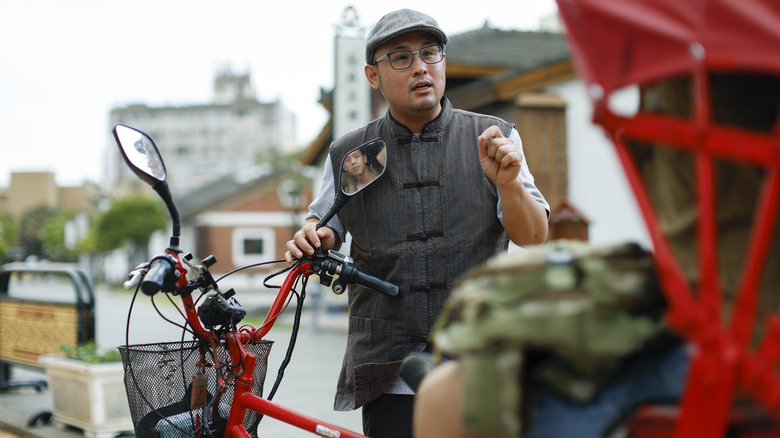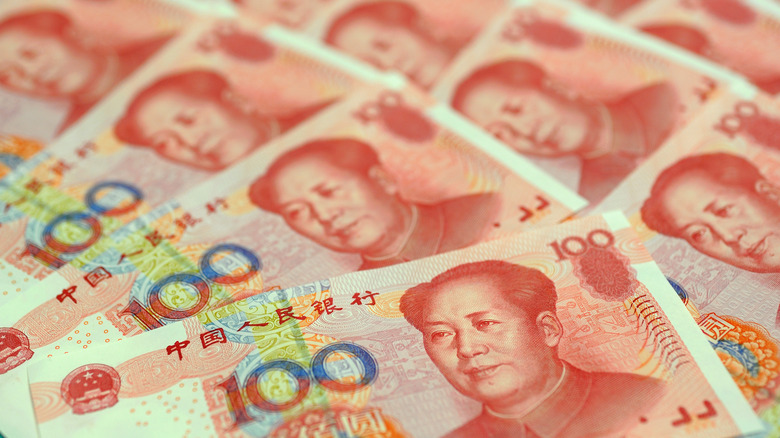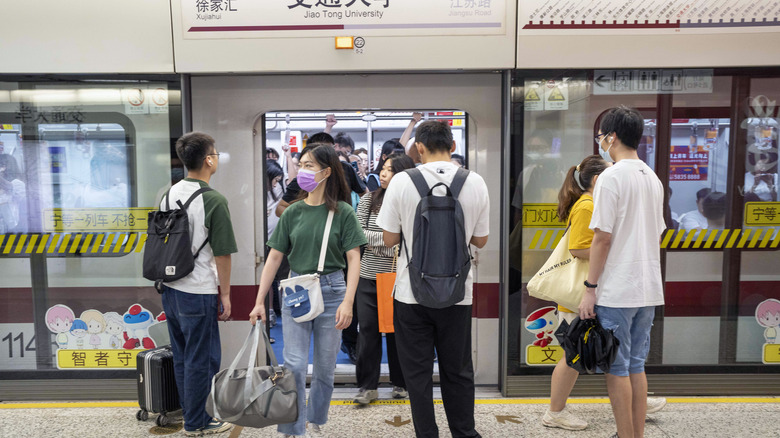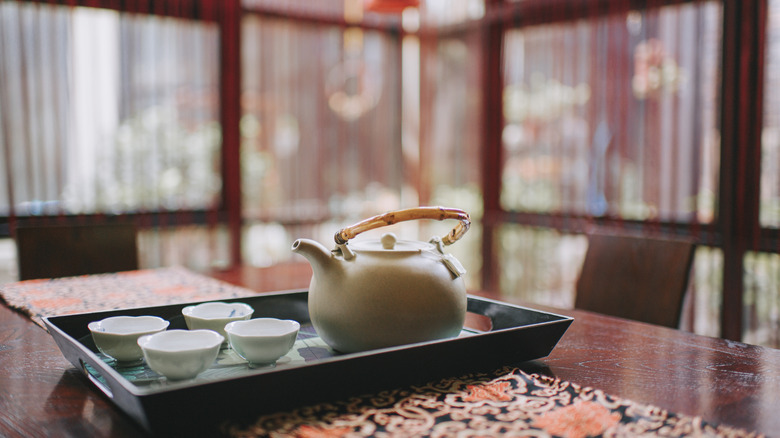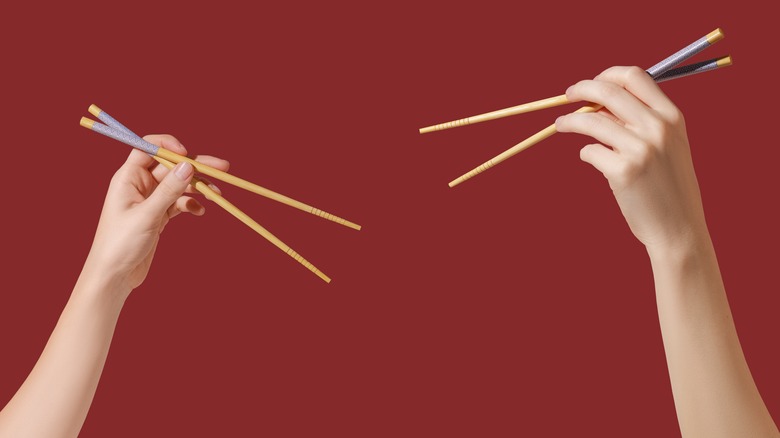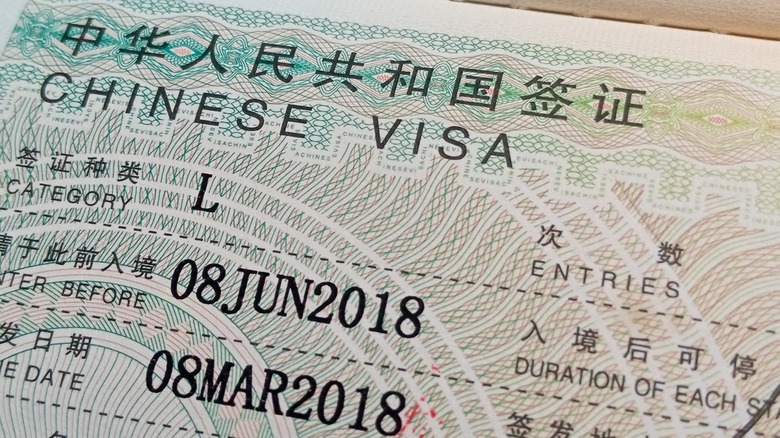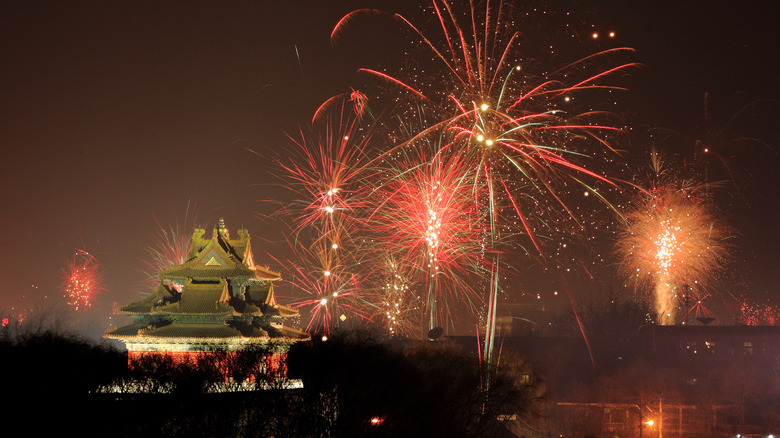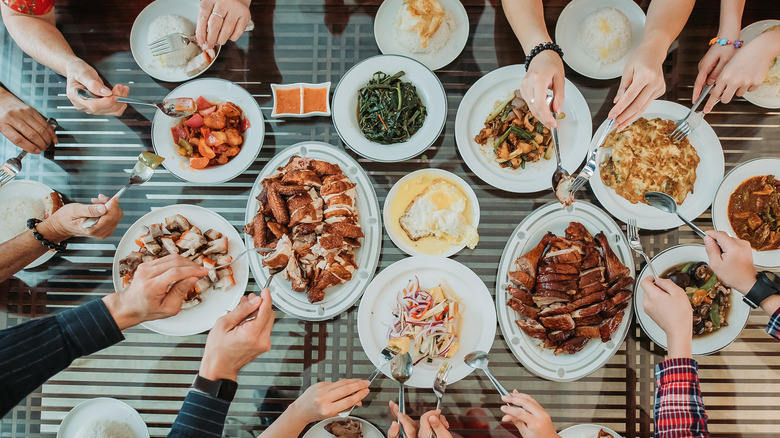12 Things Tourists Should Never Do When Visiting China
Chinese culture is one steeped in the very formations of human development. Ancient Chinese villages started cropping up around the Yellow River Valley around 7,000 years ago, but hominid populations seem to have occupied the landscape, harnessed fire, and constructed stone tools as many as 1.7 million years before our common present. The more contemporary 'Middle Kingdom,' a rough English translation of the nation's Mandarin name, is just as fascinating as its ancient past. Not only are visitors able to explore the country's antiquity in sites like the Great Wall, the Terracotta Warriors, or the Leshan Giant Buddha, but modern snippets of Chinese life are inviting attractions, too.
China holds a particular place of fascination in the minds of American travelers looking to take in new places around the world. China was historically closed off to Western trade and tourism until 1978. By the 1990s, the Chinese economy was booming, and foreign workers began to flood into the country's coastal cities, including ourselves in 2018. China is a truly rewarding, if sometimes frustrating, place for visitors to experience for themselves. For one thing, you shouldn't automatically expect anyone over the age of about 20 to be capable of conversing in English with you — although this is certainly not a universal rule, a few basic phrases are a must. When visiting, be mindful of this and other cultural norms present in one of human civilization's oldest hallowed grounds.
Don't talk about politically sensitive issues
Chinese culture is one of great deference to tradition and a sense of honor. People in China often revere their family members, including long-deceased ancestors. Coupled with shifting political realities in the country, the sensitivity to honoring one another gives rise to an aversion to speaking of anything overly sensitive. This consideration extends to the political sphere as well. While Westerners may be quick to discuss their own take on policy issues and political developments, people in China are much more hesitant to have these conversations. This reality is even more pronounced when Chinese people speak with foreigners visiting their country.
In particular, Chinese people will be extremely reluctant to discuss what is sometimes referred to as the three T's. These are Tibet, Taiwan, and Tiananmen Square. All three issues are hot-button topics that should be avoided altogether when visiting the country. Indeed, when walking through Beijing with a tour guide, you might not even get a mention of the square that's situated prominently adjacent to a gigantic image of Mao above the outer entrance to the Forbidden City. Similarly, you'll be received with awkward silence and more than a few odd stares if you start talking about issues in the South China Sea. Leaving political conversation of all sorts at home is advised when planning a trip to China.
Don't tip unless it's for a tour
Much like travels through Europe, adventurers looking for a getaway to China won't need to tip in most circumstances. The concept of tipping isn't one that has taken root here, and you might even be surprised to learn that servers and other service industry workers may even become embarrassed and try to give you back the money if you offer them a little something extra. As mentioned previously, honor and avoiding any kind of potentially embarrassing situation is crucially important in Chinese culture. Therefore, no matter how ingrained the concept of tipping might be in your own mind, you may actually be doing more harm than good by engaging in this act of generosity and thanks.
However, there is one important exception to keep in mind regarding the use of tips. If you are traveling with a tour guide or find yourself in a similar sort of environment, you absolutely should offer a tip. These types of workers rely on tips as part of their salary, and it is common practice to offer them something for their time in this industry. Even so, you might be relieved to find out that you won't have to budget a little bit of extra cash every day for tipping while you explore cities and towns, traveling around, and eating and drinking the local fare.
In fact, don't expect to use cash much at all
Importantly, it's worth noting that not only should you avoid leaving a tip on the table when you get up at a restaurant, you may not be using cash at all. Mobile wallet apps have only recently become a major factor in daily American life, but this concept has dominated Chinese personal finance for quite some time. In 2018, we rarely kept any cash, and we even found ourselves turned away on occasion in the event that our phone was dead — precluding the use of mobile payment. In one instance, the shop across the street wouldn't sell us a box of matches because we were hoping to use a few coins. Unless you're dealing with small, local produce vendors (who bring in goods from outside larger cities every morning) or anyone similar, cash likely won't get you very far in 21st-century China. The community has become virtually cashless, with Alipay and WeChat digital wallets acting as a means to conduct transactions both large and small (we paid our rent and utility bills through WeChat transfers, for reference).
Fortunately, visitors exploring China today are more readily able to take advantage of these digital payment methods than they have been in the past. Transferring cash to an Alipay account can help you avoid hefty transaction and exchange fees and allow you to fit in more readily with the convenience these tools afford.
Don't expect personal space on public transportation
Another feature of a visit to China you'll need to accept is that personal space isn't often in people's vocabulary. Chinese people aren't overly touchy-feely, and you'll typically want to avoid big dramatic displays of public affection even for people you know very well. However, in public spaces like the metro or tourist sites, you're unlikely to enjoy a whole lot of personal space. Chinese people have absolutely no problem in cramming into tight spaces with one another.
This might come as a surprise the first time you're faced with a long line or a packed metro train, but it's important to not be shy and just realize that this is a cultural norm. Public transportation is incredibly cheap, very fast in many larger cities, and typically offers a wide network of stops to help you get where you're going with ease. Using public transportation should be a part of your Chinese experience, but this means understanding that people may end up getting quite close to you.
Don't visit a Chinese friend's home without bringing a gift
For anyone who plans to spend time visiting friends in China, it's important to remember that visiting a Chinese home isn't complete without a gift. Just about any kind of gift is acceptable, including something to drink, toys for your friend's child, or even decorations. However, you'll want to avoid things like clocks, umbrellas, and chrysanthemum flowers. These items share a connotation with death and the end of things. Superstition may not be the correct word to describe this cultural phenomenon, but there is a strong tradition of word sound associations and the deference to omens that might appear quite similar on the surface.
The phrase associated with giving someone a clock as a gift sounds very much like the vocalized concept of seeing a loved one take their final breaths. Similarly, chrysanthemums traditionally appear during the mourning period after someone has passed. Umbrellas also bring bad vibes when given as a gift. The word for umbrella sounds a lot like the concept of separation, potentially suggesting subconsciously that the giver may want to end their friendship with the receiver.
Don't forget to pack toilet paper when exploring
Public toilets in China won't always have toilet paper available. This is particularly pronounced in more rural parts of the country and in tourist destinations outside of Shanghai and Beijing, two of the most modernized and internationally diverse parts of the country. Places like the Terracotta Army in Xi'an and the Panda sanctuaries and research facilities in Sichuan, Chengdu, or Chongqing bring in quite a bit of interest from tourists but are far enough off the beaten path that only basic facilities should be expected. Even in larger cities, it's a good idea to pack sanitary wipes or toilet paper to avoid a potentially fraught situation if you happen to get unlucky when opting for a pit stop.
It's also worth noting that in many parts of China, toilets won't offer the same kind of amenities that you might be used to. It's common to see standing toilets throughout China, so practicing your squat ahead of the trip and rolling with this perhaps novel way of using the bathroom will be important preparation elements.
Don't follow a stranger to a teahouse (or accept any similar offer)
Strangers in China will often stare at foreigners without shame or stigma. You'll likely find that people will stare at you and continue making eye contact after you notice them. As far as we've been told by friends and coworkers from China, this is more a product of curiosity than anything else. It might be a little intimidating, but a person staring at you shouldn't be misinterpreted as aggression or the like. Unfortunately, visitors who are Black may be subjected to even more intense gazes. Some friends have even noted that Chinese people have touched their hair without warning. There's not much that can be said about this phenomenon other than trying to handle it with as much grace as possible.
That said, Chinese people won't generally approach you and start a conversation. Younger people may ask for pictures with you, but this is typically the extent of social contact with random strangers. Therefore, if someone approaches you and strikes up a conversation, you may want to be a little wary. In heavy tourist areas, a common scam involves an offer to visit an "authentic teahouse" or something similar. Always avoid these kinds of offers because you'll end up being charged a truly jaw-dropping figure for a simple cup of tea once the bill comes.
Don't play with your chopsticks
Anyone who visits China will be eating with chopsticks a lot. You may also see shorter, more rectangular chopsticks than you might be used to in the U.S. when ordering food or eating at a restaurant. We found these stubby chopsticks fairly easy to manage, but it may require some practice to get used to them if you're accustomed to a different type or haven't used chopsticks very often already.
While testing out your chopsticks in China, it may be tempting to manipulate them with your hand in order to acquaint yourself. But make sure you don't play with them too much. Chinese people don't ever use chopsticks to point at one another or as a sort of prop. Chopsticks are for eating and eating alone. Additionally, you should absolutely never place chopsticks sticking straight up in your bowl. Similar to Japanese culture, chopsticks positioned like this resemble a ceremonial ode to the dead. In Japan, it's customary to leave a bowl on the table — with chopsticks included — for the loved one who has been lost. There is quite a bit of crossover in familial heritage in this region, so many people in China may perform the same ritual. Even for those who don't, however, chopsticks positioned like this look very much like the incense sticks used to commemorate a loved one's life, and you'll certainly get a few strange glances if you place your chopsticks in this manner.
Don't expect to wing it when planning your trip
Before even setting foot in China, it's important to note that you won't really be able to wing it when planning an epic adventure. Previously, tourist visas required to enter China have been quite expensive, and a visa application required quite a bit of supporting documentation. To successfully gain entry to the country, you would have needed to already book your flight, reserve a hotel room, and include return flights. Chinese visa authorities have also been known to be a little difficult with passports that are damaged in some way or another. For reference, when applying for our initial visas to enter the country, we had to show up at the immigration office in person (in Hong Kong) rather than using the standard agency approach because our passport exhibited previous water damage. We also had to include letters noting the details of our previous travels to Turkey. Presumably, there must be some nations that perhaps raise eyebrows for visa-issuing purposes. Anyone with quite a bit of travel under their belt will want to look into any possible delays resulting from these issues.
It's worth mentioning that the requirement for considerable documentation accompanying a visa application (for U.S. citizens) changed on January 1, 2024, at least officially. However, this may not always be applied in practice, so providing supporting documentation remains a good idea as the new policy has time to settle.
Don't wear green hats
Wearing a green hat might sound like a funny no-no when visiting a foreign country. However, in China, this practice signals an air of infidelity, and you'll surely get quite a few odd looks if you opt to travel around China with a green hat on your head. Green attire of other types is perfectly fine, and this stigma doesn't extend beyond your headwear.
It is not clear where this social norm came from, but it's thought that the term for wearing a green hat sounds similar to phrases relating to infidelity. Alternatively, anecdotal evidence suggests that sex workers and their relatives may have been forced to wear green hats at certain points in Chinese antiquity. No matter what the reality that lends itself to this understanding might be, a green hat is a symbol of impropriety that marks you or your loved one as unfaithful. Simply avoiding the color for headwear is a good idea when visiting China.
Don't travel during Chinese holidays
Cities like Shanghai totally empty out during holidays. Chinese New Year, in particular, sees the city virtually empty, which can be an eerie sight for anyone who's traversed its tremendously busy streets during other parts of the year. It might seem like good timing to explore China's bustling cities when the local population empties out for the holidays, but when they leave, businesses close down, and it can be challenging to find what you're looking for in terms of services, accommodation, and other travel-related experiences.
Similarly, if you're planning on visiting other sites around China, like the Tongguan Ancient City, Huashan Mountain in Shaanxi, or Harbin's winter festivals (in the north of the country), avoiding these holiday periods is equally important. China enjoys a staggering domestic tourism industry, and when people have time to press pause on their daily lives, they travel in gigantic numbers to these types of tourist attractions. As a result, you'll either see limits on your exploration or be inundated with other travelers all looking to experience China's cultural riches, driving up prices and making things far more crowded.
Don't be afraid of the food
Lastly, it's crucially important for visitors to the country to be as ambitious and adventurous as possible when it comes to their culinary experience. Food and drink are a major part of any visit to China, and missing out on the opportunity to eat delicious xiao long bao in Shanghai, biangbiang noodles in Xi'an, or the most amazing crispy duck you'll ever lay eyes on at Siji Minfu in Beijing is the perfect way to ruin your holiday. That's no exaggeration; food is a core part of the Chinese experience. From dumplings filled with all kinds of delicacies like lotus and green onions to hot pot restaurants, there is so much to love about Chinese cooking when experienced in its natural element.
Hot pot meals are a particularly unique and satisfying adventure. You order a broth as well as some combination of vegetables, rice or noodles, and meat sliced incredibly thin. Dunking these elements into the broth, you get a pick-your-own-adventure of sorts. These restaurants offer a variety of spice levels and additional toppings to throw into your broth, like chopped garlic, green onions, or mushroom sauces. Just make sure you taste any dark liquids before putting them into the broth because vinegar is often on tap next to soy sauce. The experience you enjoy with Chinese food can transform a trip to this fantastic country. Don't be afraid of all the unique dishes you'll find while traveling through China.


